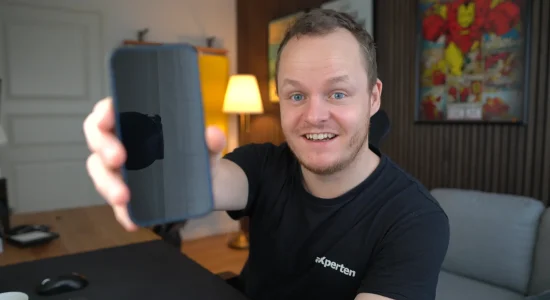We live in a world where distractions and distracting thoughts are inevitable while we are working. Because there seems to be no way around distractions, learning to overcome them is one of the best things we could do for ourselves.
How do you stop being distracted by thoughts? Here are nine ways to calm the mind and reduce distraction:
- Plan ahead.
- Remove distractions from your environment.
- Meditate.
- Tune everything out.
- Take regular, short breaks.
- Maintain healthy and positive habits.
- Find the root cause.
Do you often find yourself getting off-task because of an overactive mind? If you want to feel more productive, there are many ways to calm your mind and prevent distractions from occurring in the first place.
What Causes Distracting Thoughts?
Do your thoughts tend to distract you from your work? You are not alone! According to a survey done by Udemy, 70% of workers admit they feel distracted while on the job, while 16% feel they are always distracted regardless if at work or not. (Source: Inc.)
But what causes distraction in the first place? What about our environment pulls our thoughts away from tasks we should be paying attention to?
One of the biggest factors that affect how well we can focus is our physical environment: more specifically, your workspace itself. From chatty study partners coworkers to interrupting instant messages, your work area can easily distract you from what you need to get done.
So how do you overcome a distracting environment? You simply make the right adjustments to it, but if that does not work, below are nine ways to calm the mind and keep distractions at bay!
7 Ways to Calm the Mind & Reduce Distraction
1. Plan ahead.
Tidy Up
Start by cleaning and organizing your workplace; having a clear area reflects a clear mind. If your environment is dirty or disorganized, you will not be able to focus as much—you will be too distracted by the clutter around you!
Make a To-Do List
Write a list of things you need to get done during the day, both big and small. Write out the details concerning these tasks, including the steps you will take to do them. By doing so, you will actually save on the amount of time it would take to complete those tasks, and leave less room for distractions!
If you feel like a project is too big to take on, try breaking it down into achievable steps that can be individual tasks. This makes the work seem less intimidating, and you will feel much better when you can complete it!
Make a Schedule
In the morning, take some time to organize your tasks by how long it will take to complete them. Ideally, you want to work on the most time-consuming task first, earlier in the day. You usually have the most energy in the morning (after you have woken up, of course), so dedicate this energy towards completing tasks that require the most work.
It is also important to set deadlines for yourself. For complex tasks, give yourself an hour to an hour and a half to complete it. For simpler jobs, give yourself a maximum time limit of thirty minutes to an hour.
2. Remove distractions from your environment.
Go Offline
If you want to start feeling focused, stay offline until you have finished your work first. If you require a computer and online access to complete tasks, adjust your browser settings to block social media sites and other sites that would otherwise keep you distracted.
Remove Electronics
Simply having access to your smartphone can distract you! Keep your phone turned off or on silent and in a drawer until you are done working. If you need to focus on reading, turn off, and remove any other electronics in your possession, including tablets and laptops.
3. Meditate.
You do not have to meditate every single day, but do know that the act of meditating at least once a day benefits your brain and your ability to focus!
4. Tune everything out.
The best way to tune everything out is to listen to tunes! Ideally, if you want the most focus, choose songs that are slow in tempo and lower in volume. If you can, look for songs that do not have words or instrumental versions of the songs you love; this way, you will not be tempted to sing along and get distracted!
Additionally, use a pair of noise-canceling headphones; if you work in a noisy environment, this will help drown out the noise while also signaling coworkers or other people around you that you are not available to talk.
5. Take regular, short breaks.
If thoughts are distracting you from your work, take a short break to get refocused on the task at hand. About five minutes is enough to reset and be mentally prepared to keep working.
To avoid taking advantage of break times, try the Pomodoro method, in which you work for 25 minutes at a time followed by five-minute breaks in-between. After four cycles, give yourself a long break of 15 minutes to really reset and get ready for the next task.
6. Maintain healthy and positive habits.
Get a Good Night’s Rest
Get enough sleep at night; you will feel energized enough in the morning to take on any task! You also will not feel drained by the time your workday ends.
Eat Healthily
Maintain a balanced diet—doing so can benefit your mental health, as well as your overall health. This is especially important when it comes to work lunch breaks; eat healthy options, so you do not feel tired and bogged down by the time you return to your desk.
Exercise Regularly
Set aside an hour at least two or three days a week to exercise. Go for a jog around your neighborhood, or visit the gym near you. Doing so will increase your heart rate, increasing blood flow to your brain.
7. Find the root cause.
Of course, if the previous tips do not seem to keep you focused as much as you would like, try to pinpoint the root cause of your distraction.
External Causes
Is there something about your physical environment that is bothering you? If it is something you cannot necessarily control, discuss your concerns with your boss or anyone else who would have control over organizing that environment.
If your concern lies more in the people you work with, open a line of communication with them. Express how you feel about how their actions distract you from your work and reach a compromise if needed.
Internal Causes
Believe it or not, distractions can be internal as well as external, so do a mental check-in with yourself. What is really bothering you? Is there something going on that is causing stress or anxiety? This is most likely the root cause of chronic distraction.
After you have discovered your “internal” distractions, try to express your concerns with a loved one or close friend. If you are not comfortable revealing how you feel to them, try seeking out counseling, or perhaps writing your thoughts in a journal regularly.
Once you have addressed the source of your anxiety or stress, you will most likely be less distracted from thoughts related to it.
Ready to start getting focused again? Follow the above tips, and you will be completing tasks in no time!
…







